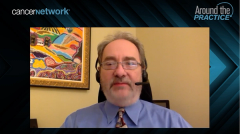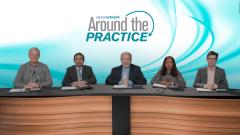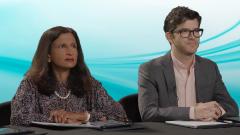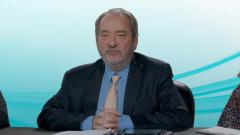
Management of Bispecific Toxicities and Final Thoughts on Treatments in MM
Closing out the panel discussion, experts review the management of bispecific-related toxicities and share their final thoughts on treating patients with multiple myeloma.
Episodes in this series

Transcript:
Robert Z. Orlowski, MD: Before we wrap up the discussion on relapsed/refractory disease and especially all of these bispecifics, Cesar, you mentioned the inpatient hospitalization and the CRS [cytokine release syndrome]. But tell us more about what that can look like, and what the management techniques are, because we’re all going to be doing a lot more of this moving forward.
Cesar Rodriguez, MD: At the moment, talking about teclistamab and CAR [chimeric antigen receptor] T-cell therapy, approximately 70% of the patients are developing CRS. The majority of the CRS is grade 1 or 2, there are very few cases of grade 3. And most of the CRS is happening with the first step ups and the first dose. It is a very small percentage of patients who are developing CRS after their first full dose. We’re using tocilizumab or dexamethasone whenever somebody does develop grade 2 or higher, and sometimes, depending on the PI [principal investigator]’s discretion, grade 1. One of the things that we’re trying to incorporate or adopt is, do we pull the trigger a bit sooner at giving tocilizumab to try to prevent the shoe dropping completely so that we can have a quicker recovery, and therefore shorten that hospital stay? There was a study presented here at ASH [American Society of Hematology annual meeting] showing using tocilizumab as prophylaxis and see how that reduces the incidence of CRS, and it seems to have reduced it significantly but not eliminated it. It has reduced it from 60% to about 30%. That’s a great improvement, but unfortunately, I don’t think it’s enough. If we’re wanting to transfer this to an outpatient therapy, we need to make sure that that CRS risk is minimized because 30% or 20% CRS in the outpatient setting, in a community practice, could be a disaster.
Robert Z. Orlowski, MD: Then, Ajay, could you tell us about ICANS [immune effector cell-associated neurotoxicity syndrome] as well, which is less common than CRS, but in some ways, if it happens, more concerning?
Ajay K. Nooka, MD: The good thing about ICANS is the neurotoxicity associated with any of the cellular therapies is a possibility, but the numbers are significantly less when you compare it with the CAR T experience. So, the neurotoxicity here is predominantly seen as headaches with the approved drug, with teclistamab. Across the board, this is happening in around 20% of the patients, and these are mild as grade 1 toxicities. When you talk about beyond grade 3 toxicity, that is extremely minimal, which is good news.
Robert Z. Orlowski, MD: Any last comments on relapsed/refractory disease before we wrap up the panel?
C. Ola Landgren, MD: One thing I would like to bring up is that there are all these new drugs, we talked about it all the way from newly diagnosed into relapsed. There are some patients who have not had a lot of benefit from all these amazing drug developments. A big missing piece in the puzzle is to be better at identifying high risk, to dissect high risk biologically, and we need to apply more precision medicine to these patients. Clearly, these are different subgroups of patients, but they need other drugs than we have. There are patients who will have a much shorter lifespan, and they have not benefited from all the existing drugs. That’s an important task for the field.
Robert Z. Orlowski, MD: Very good. I’d like to thank all of the panelists for a wonderful discussion about transplant-eligible, -ineligible, and also relapsed/refractory multiple myeloma. Also to the viewing audience, thank you for joining us. We hope you found this CancerNetwork® Around the Practice discussion to be useful and valuable for treatment of your own patients with multiple myeloma, and that you enjoyed hearing all of the wonderful news about the new and better treatment options becoming available.
Transcript edited for clarity.
Newsletter
Stay up to date on recent advances in the multidisciplinary approach to cancer.










































